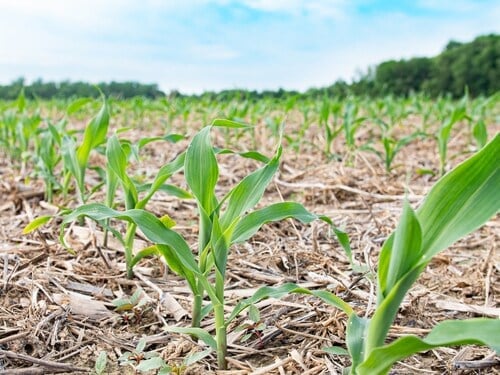Key Takeaways:
- The project supports 1,000 acres of farmland in Lafayette, Indiana, promoting soil health and carbon sequestration
- Collaboration with Primient builds on Sustainea’s sustainable sourcing strategy for Bio-MEG production
- Initiative aligns with Sustainea’s goal of reducing emissions and advancing regenerative agriculture across the U.S. Midwest
- Sustainea’s Bio-MEG facility, expected to start operations in 2028, aims to avoid up to 400,000 tons of CO₂e annually
- Long-term plan includes farmer support, data collection, and investment in on-farm regenerative practices
Sustainea Bioglycols Advances Low-Carbon Agriculture
Sustainea Bioglycols announced the launch of a regenerative agriculture project in collaboration with Primient, a major U.S. producer of plant-based ingredients. The partnership represents a key step toward Sustainea’s goal of reducing its environmental footprint and promoting sustainable agricultural systems.
The project, located in Lafayette, Indiana, will initially cover 1,000 acres of farmland, one of the most productive areas in the U.S. Corn Belt. It will focus on improving soil health, increasing carbon sequestration, and reducing greenhouse gas emissions.
CEO Gustavo Sergi stated, “Regenerative agriculture is a real opportunity to tackle climate change while strengthening rural American communities in the U.S. Midwest. By working directly with local farmers and trusted partners, we’re supporting practices that enable long-term, generational success of the industry.”
Partnership with Primient to Promote Responsible Sourcing
The collaboration with Primient builds on an existing relationship through Sustainea’s development of the first U.S. Bio-MEG facility. This initiative supports responsible corn sourcing, the primary feedstock for Sustainea’s renewable glycol production—and encourages broader adoption of regenerative agriculture practices.
Laura Kowalski, Head of Sustainability and Marketing at Primient, said, “Primient has been working since 2018 to increase adoption of regenerative agriculture practices in the U.S. Midwest. Our program helps decarbonize our main raw material, corn, and drive resilience through our agricultural supply chain. We are excited to partner with Sustainea to make an even bigger impact together.”
Primient’s regenerative program assists farmers with tools, insights, and financial support to implement practices such as no-till farming, crop rotation, reduced fertilizer use, and cover cropping. These efforts are supported by advanced technology to track environmental outcomes.
Sustainea’s Bio-MEG: Scaling Renewable Chemical Innovation
Sustainea’s Bio-MEG is produced from renewable, plant-based feedstocks and offers a low-carbon alternative to petroleum-based MEG, with no compromise on performance. The company’s upcoming U.S. Bio-MEG facility, set to begin operations in 2028, will process about 42,000 bushels of corn per day and could prevent up to 400,000 tons of CO₂e emissions annually.
As operations expand, Sustainea plans to scale its regenerative agriculture initiatives by focusing on three pillars: providing local farmer support, gathering supply chain insights, and funding regenerative on-farm improvements.
Sergi added, “This initiative strengthens our commitment to designing a system that creates value at every level—from the way feedstock is sourced to the final products delivered. By implementing this program, we give our partners and customers greater visibility into their supply chains and measurable progress toward lowering their environmental footprint.”


